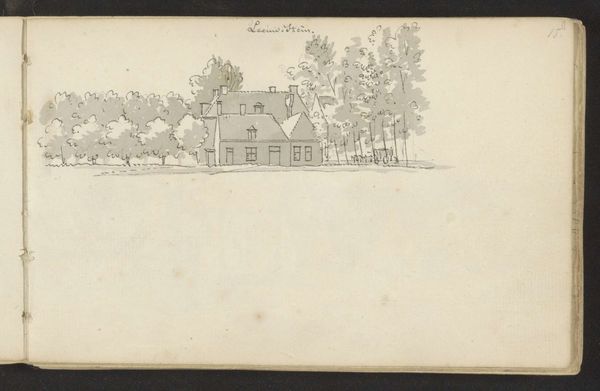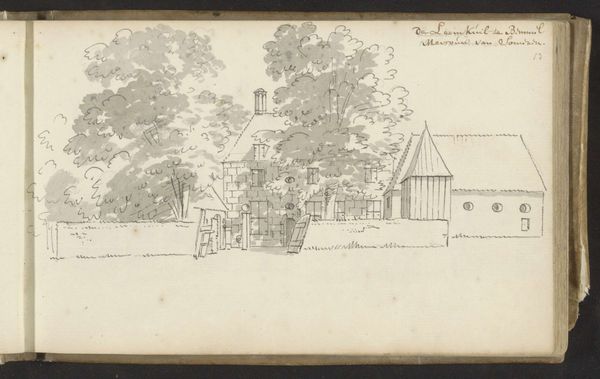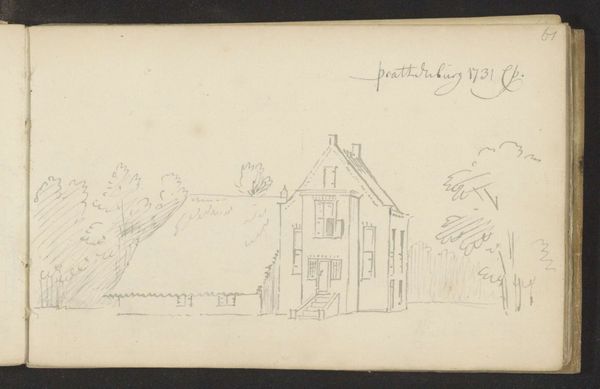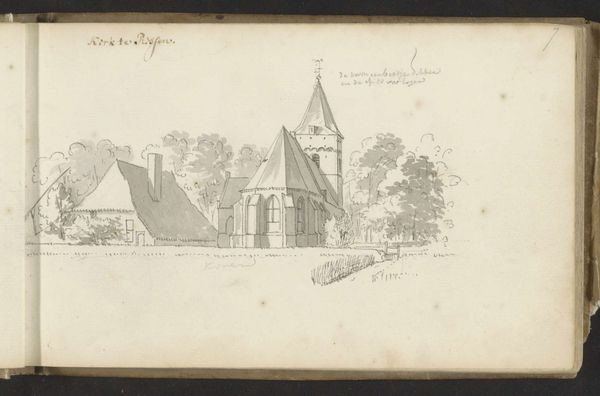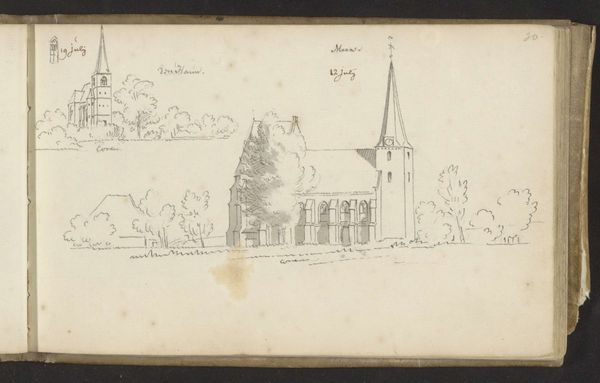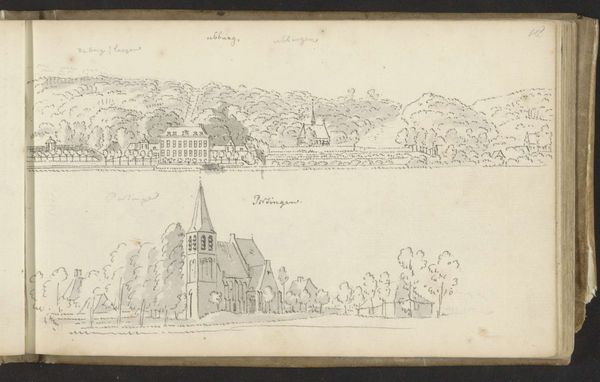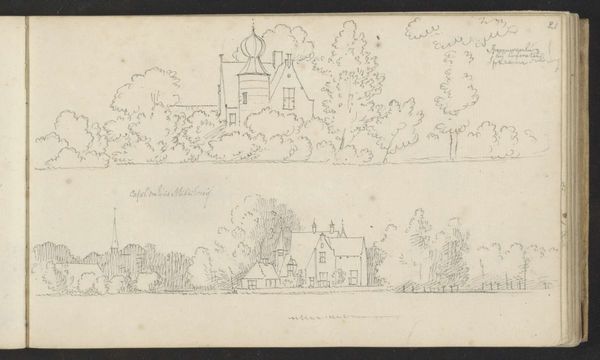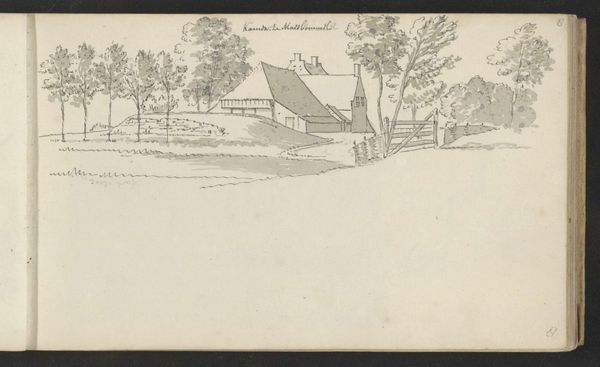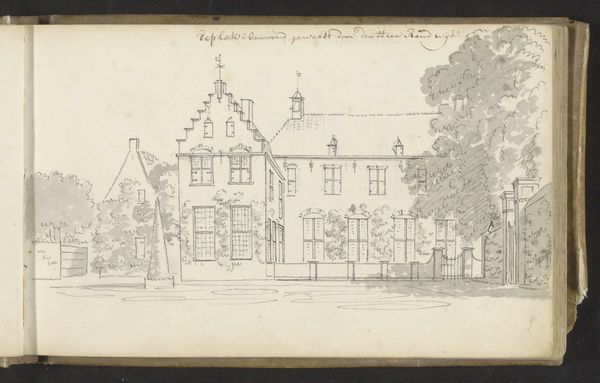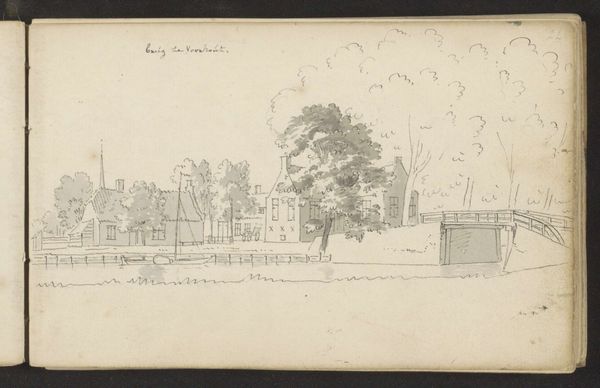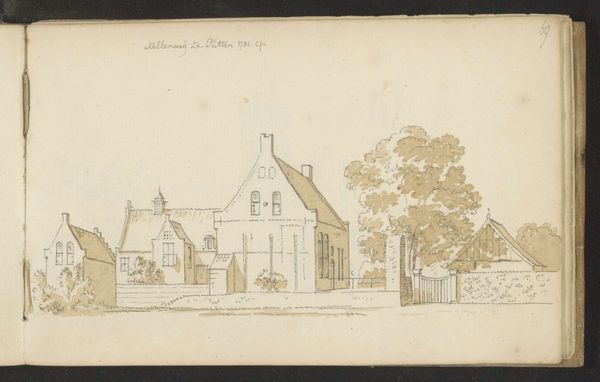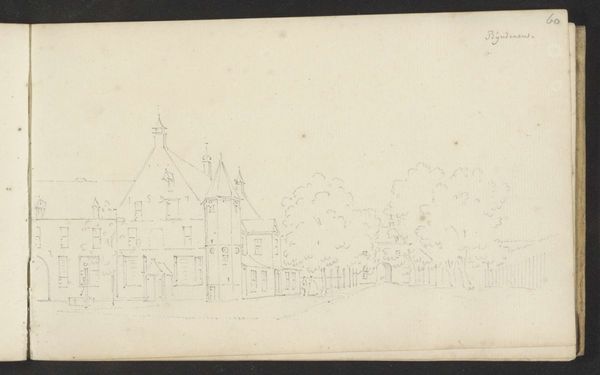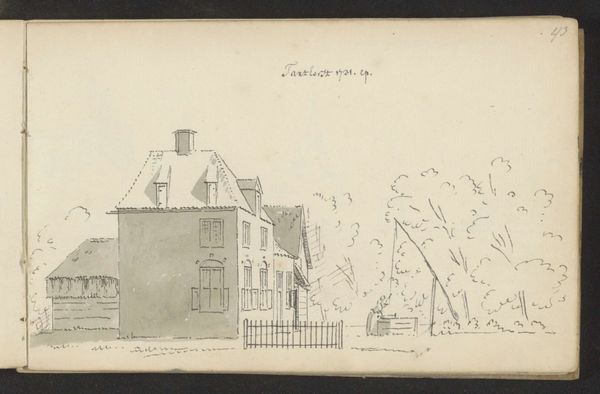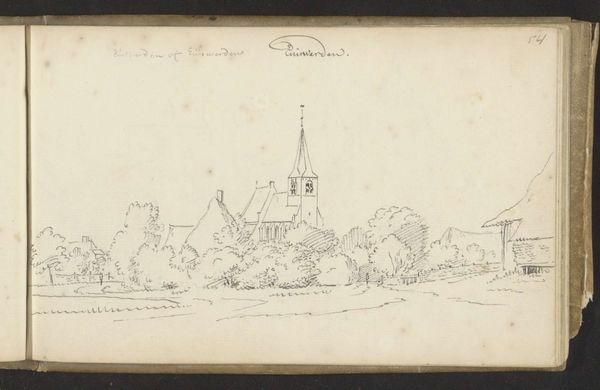
drawing, pencil
#
drawing
#
quirky sketch
#
dutch-golden-age
#
pen sketch
#
sketch book
#
landscape
#
personal sketchbook
#
sketchwork
#
pen-ink sketch
#
pencil
#
pen work
#
sketchbook drawing
#
storyboard and sketchbook work
#
sketchbook art
Copyright: Rijks Museum: Open Domain
Editor: This is "Huis Presikhaaf bij Arnhem" by Abraham de Haen the Second, created in 1731. It’s a pencil and pen drawing housed at the Rijksmuseum. It feels very intimate, like a page torn from a personal sketchbook. What's your take on a drawing like this from a historical perspective? Curator: This isn’t just a pretty landscape; it offers a glimpse into the social fabric of the Dutch Golden Age. Drawings like this were often commissioned by or created for the elite. Consider the subject matter: a grand estate. Who owned this “Huis Presikhaaf”? And what did it represent within the local socio-political landscape? Editor: So, the house itself is almost a symbol? Curator: Precisely! Think about the patrons who might have collected such imagery. These drawings often acted as status symbols, displayed within their own homes, reinforcing their position within society. Also, how might the artist, Abraham de Haen, have benefitted from this depiction of wealth and power? Did he have ties to this elite family, maybe shaping the visual language of the piece to their liking? Editor: That's fascinating. It makes me consider who this was really for and who might have even seen it. Is there anything we can deduce about how art was viewed at this time? Curator: Certainly! Landscape art was gaining popularity as a means of celebrating the Dutch countryside and its cultivated spaces, largely controlled by wealthy landowners. What message might it send to other emerging merchants who were trying to achieve the same status? Editor: I never considered that. It really changes the way I look at this drawing. Now it seems more like propaganda. Curator: Indeed. By considering the drawing's place within its historical context, we can glean valuable insights into the dynamics of power, status, and the public role of art during the Dutch Golden Age. It's amazing how much a simple sketch can reveal. Editor: I’ve definitely got a lot more to think about when looking at seemingly simple landscapes now. Thank you for the insight!
Comments
No comments
Be the first to comment and join the conversation on the ultimate creative platform.
